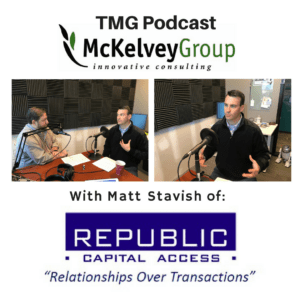Written By: Matt Stavish, Vice President at Republic Capital Access
Happy Valentine’s Day.
Today couples are acknowledging their love for each other with cards and small chocolate candies. In the financing market we are seeing companies profess their fondness for the cheapest money they can find on the market, while not paying too much attention to loan structure. Hence the title: Love Interest Rates and Like Loan Structure? I would argue that companies need to Like Interest Rates and Love Loan Structure.
It is not surprising that CFO’s will look for the best rate in town; who doesn’t enjoy telling the competition that you are getting the cheapest rate around. However, the real cost of money is the summation of several intangible qualities that impact the business far greater than the cost of borrowing. We will call this the Absolute Cost of Borrowing.
A few factors in determining the Absolute Cost of Borrowing:
· Time: How much time will be spent making sure the company adheres to the loan covenants? Does the business have a capable back office? How much time will the financial staff spend managing covenants, preparing borrowing statements instead of helping draft a pricing proposal?
· Fees: A big part of the Absolute Cost of Borrowing are the additional fees. Fees matter and they are paid in dollars just as interest. There are a myriad of fees, here are just a few: Documentation Fee, Termination Fees, Lien Search Fees, Financial Capability Letter Fees, Collateral Monitoring Fees, Loan Servicing Fees, Wire Fees, ACH Fees
· Producing Timely Financial Reports: A common request from the lender is the production of financial documents within 45 days of a quarter end. Often, this has a ripple effect through a firm’s back office support systems: accounting systems and time keeping systems. Coupled with complex contracts, producing financials for a small business could be very costly.
· Lost Potential Revenue: If your financing source does not understand your business you could be letting opportunities slip through your hands. What if they can’t increase your line of credit to match your growth? Or worse, your company decides to ignore RFPs because they don’t think the financing source will be a willing back to accommodate the win.
A general rule of thumb is that the lowest cost of capital will have more strings attached, period. If your company is not quite ready for that commitment, look for a capital provider with more flexible terms, even if it costs you a few extra points. Companies are not going out of business because they paid 50 basis points more for a line of credit; they go out of business because the line of credit was frozen for violation of covenants. You might find that you too Like Interest Rates and Love Loan Structure.











